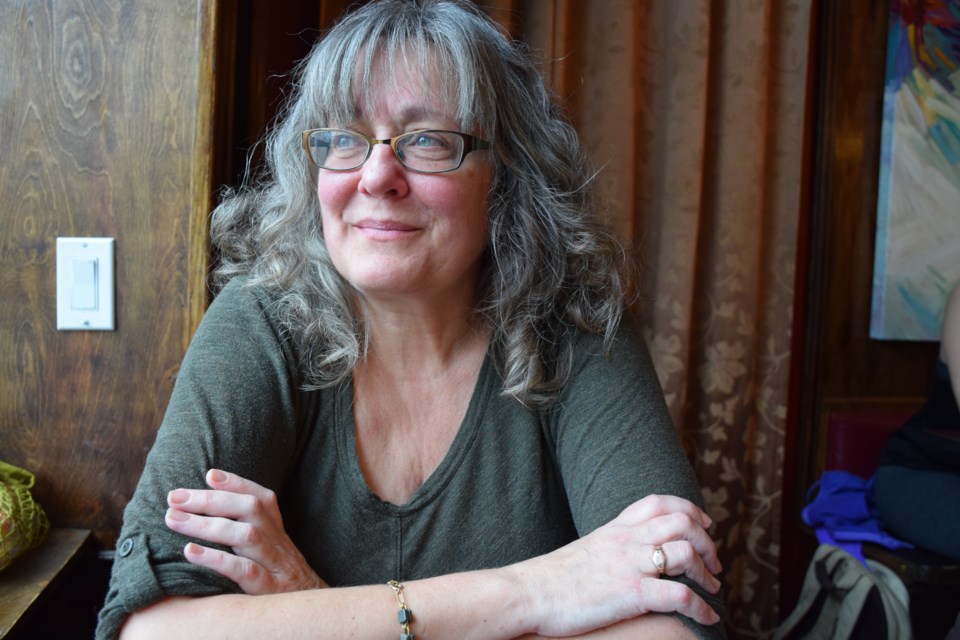Growing your own food in an urban environment is not without its challenges, but it’s a necessary part of food security, says Susan Carey, the chair of Transition Guelph’s Urban Food Working Group.
Spring will eventually bloom in Guelph, and when it does residents will begin working the soil, planning and planting backyard and community gardens, and tending to fruit trees throughout the community. The Urban Food Working Group is working to ensure that more people learn how to grow and preserve their own food, while providing them the skills and the actual tools to do so.
“Our mandate is very simple - we view food as a commons,” Carey said. “Everybody should have a communal right to food, and not just to calories, but to quality food.”
What grows in gardens and on trees has the potential to provide more people with that good food. But some skills are required, skills that were once woven into the culture and lifestyle of Canadians, but have been lost.
The Urban Food Working Group has five ongoing projects, including one called the Appleseed Collective. There is an abundance of fruit trees in the city, the fruit of which often goes unused. The collective collects that fruit and distributes it to those who can and will use it.
Preserving it requires some good, old fashion canning skills, that, says Carey, are not that difficult to learn. The group conducts sessions that teach people those skills.
Food security, Carey said, is a social problem in most urban settings. Many people do not have enough money to buy the food they need. Food banks provide food, but they do not provide a long-term solution. Food self-sufficiency – having the space and skills to grow our own food – is part of that solution.
“We hope to make a dent,” she said. “It’s a big issue, but we will do our little bit locally, and maybe we will make a difference in the lives of a few families.”
Carey said food banks are used by only about 25 percent or less of those who experience food insecurity. Other responses to the problem are necessary.
“Community gardens and backyard agriculture are other ways to address access to quality fresh and local food,” she said. “Our aim is to run urban agriculture projects with the view of food as a commons, meaning everyone has equal right to equal access to quality food.”
The group’s other projects include the Guelph Community Orchard, which tends to fruit trees and berry bushes in two public locations in Guelph. The Urban Sugaring Project began this year to tap into the city’s many maple trees, and Guelph Forages in a Facebook group that monitors the availability of edible plants in the Guelph area and lets people know what’s out there to be foraged.
Upcoming events will help prepare people for planting season, and involve them in community garden planning and readiness.
On Saturday, April 16 at Grace Community Church - where Transition Guelph has its GROW communal teaching garden - people will gather from 9 a.m. to noon to build rain barrel platforms and planting beds. Soil will be turned if conditions are right.
And on Wednesday, April 20, the group will have a tool library planning meeting at 10 Carden Street from 7-8 p.m., opening the idea up to the public in an effort to get more people involved.
“This is something that is going to happen this year,” said Carey, speaking of the tool sharing plan.
The group is looking for a small piece of preferably city property for the tool lending library. It has a contingency plan in place, but needs a more permanent locale.
The focus of the tool library is food production tools – shovels, wheelbarrows, dehydrators, fruit picking poles, and pressure canners. Not just tools that grow food, but also tools that process that food. Carey would like to hear from anyone with tools to spare. Send an email to [email protected].
More local people appear willing to get involved in what the Urban Food Working Group is doing, Carey said. As more volunteers come forward, stronger and broader community connections will be forged. Carey said partnering with Guelph’s many neighbourhood groups, finding champions of urban food production in different parts of the city, would go a long way towards helping projects take root and grow.
Learn more about Transition Guelph and the Urban Food Working Group here
